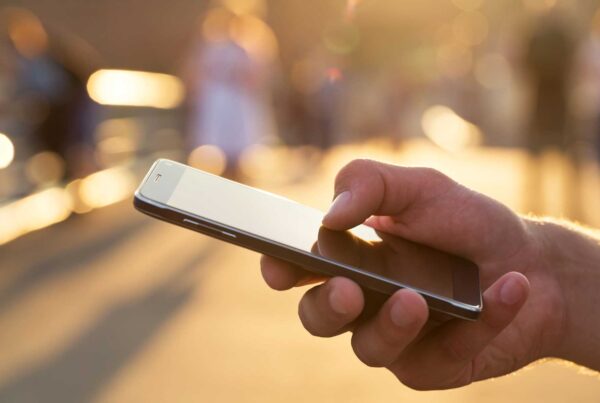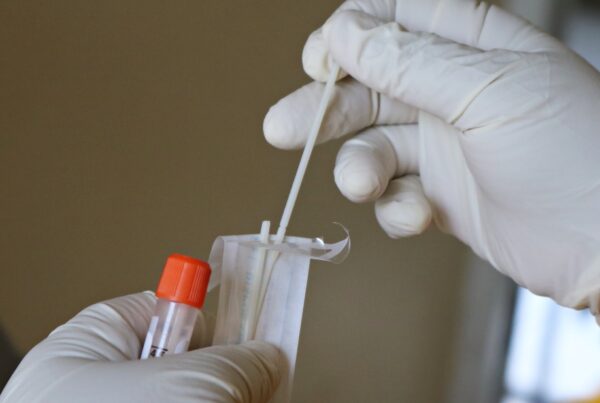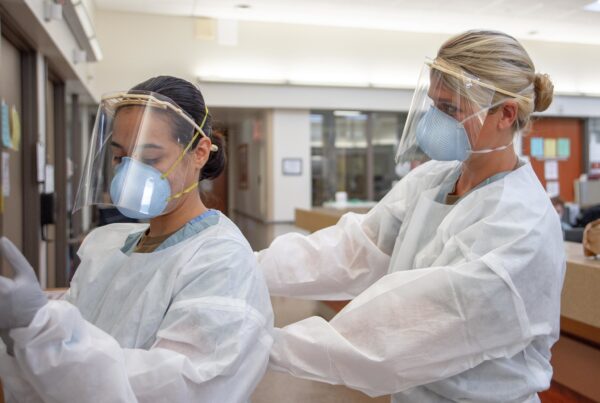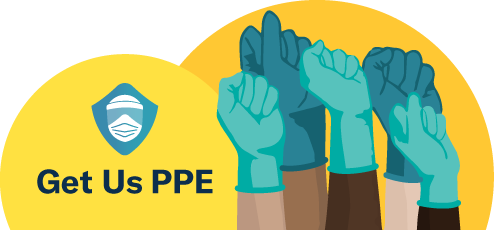By Unnati Gupta
The Big Picture
An update on the numbers: the United States now has over 6.7 million confirmed coronavirus cases and almost 200,000 total deaths. Case numbers continue to rise among young individuals, and the highest case rates (infections per 100,000 people) were seen in Louisiana, Florida, and Mississippi.
N95 Mask Shortage
With unreliable international supply chains affecting the ability of healthcare centers to meet the required amount of PPE, people are looking to domestic production of masks to fill the countrywide N95 mask shortage. However, despite promises from government officials, healthcare centers are still scrambling to meet mask requirements. Much of this is attributed to the unwillingness of small and mid-sized businesses to shift production making masks. While the United States has seen some large companies like 3M step up to make masks, many smaller businesses have been deterred from producing PPE due to the lack of return on their investment. In the spring, many small businesses pivoted to creating easier-to-produce PPE and sanitizing supplies like face shields and hand sanitizer, but only few created masks, due to their increasing level of complexity. The effects, as we now see, are an excess of items such as plastic face shields and a shortage of masks. For small businesses, the production of masks is not reasonable, but neither is having excess boxes of face shields or sanitizer. While government officials often praise the ability of the United States to produce PPE domestically, the reality is much more stark: The disunified response to this PPE crisis has led to the inefficient use of resources and as a result, continuing PPE shortages.
Nurses Exposed to Coronavirus
Across the United States, nurses are reporting being exposed to coronavirus, because there are not designated areas for COVID-19 patients. At a hospital in Oakland, Nurse Paiste-Ponder died of COVID-19 after being exposed to coronavirus patients who were reportedly “scattered through” the hospital. A recent study by National Nurses United showed that 32% of nurses surveyed do not have a dedicated COVID-19 unit in their hospital. Even so, local and national regulations have done little to enforce compliance to hospital guidelines that require COVID-19 patients to be separated from other patients and staff. It has also been noted that the CDC does not have clear national instructions on how to section off coronavirus patients or if this action is mandatory. These unsafe conditions, combined with the N95 mask shortage, among nurses has led to a constant stream of safety complaints.
Faces Behind the Names
In many instances, we can get caught up in the numbers of this pandemic: how many deaths have occured, how many current hotspots there are, how many nurses are being affected. In the constant stream of data, it is important to slow down to look at the faces behind these numbers. Oscar Sánchez, a critical care nurse at Massachusetts General Hospital has been thrust to the front lines of this pandemic. He laments that the hardest part of his job has been seeing the disproportionate number of Latino cases. With Latinos being 67% of the Boston population and Boston having the highest case number per capita, Sánchez often thinks, “that could be me; that could be my family”. In many instances he is “taking care of people where the whole family was hospitalized,” which he says “hits close to home”. In order to keep his family safe, Sánchez has been living in a hotel, staying away from his three children. His story and perseverance is an example of the very real emotions and conditions that many frontline workers live through every day.
This Week at Get Us PPE: Megan Ranney, Esther Choo, Jeremy Faust
Elemental released an article outlining the top 50 experts to trust during the coronavirus pandemic. With politics often underscoring many statements that come from top officials, it can be difficult to separate facts from fiction. Co-founders of Get Us PPE Dr. Megan Ranney, Dr. Esther Choo, and Dr. Jeremy Faust all appear on the list as experts who have continuously shared science-based information and insight about this virus.
Dr. Ranney shares her views on reopening businesses nationally with CBS News. As New York City, motivated by the lowering case numbers, proceeds to reopen many businesses on Wall Street and physically call in employees, Dr. Ranney expresses her concern, stating, “There may be some economic benefit to having some people come back to the office, but the benefits are outweighed in most situations by the risk to [the] community of transmission.” She mentions that many health experts are predicting the true second wave of this virus to hit in fall, making this a dangerous time to call in professionals to work. Dr. Ranney calls these actions “short-sighted from a public health perspective.”
Dr. Ranney also weighs in on the concerns surrounding the upcoming flu season and its effects on the coronavirus. Health officials have warned that a “twindemic” could occur if Americans do not get the flu shot this year. Although vaccination has been a topic of contention for years, it has been brought to the spotlight due to the dangerous side effects that could result from low vaccination rates. Although public health information is being widely distributed during these times, there is concern on how to convince the public to get the flu shot. Dr. Ranney explains that many Americans are simply exhausted and overwhelmed by the current environment, and don’t have “any extra brain bandwidth right now,” a prevalent obstacle in making sure a majority of people get this flu vaccine. Organizations like the CDC and private businesses are taking steps to overcome this by creating massive messaging campaigns to easily convey to Americans the importance of minimizing the effects of flu season by getting vaccinated.




